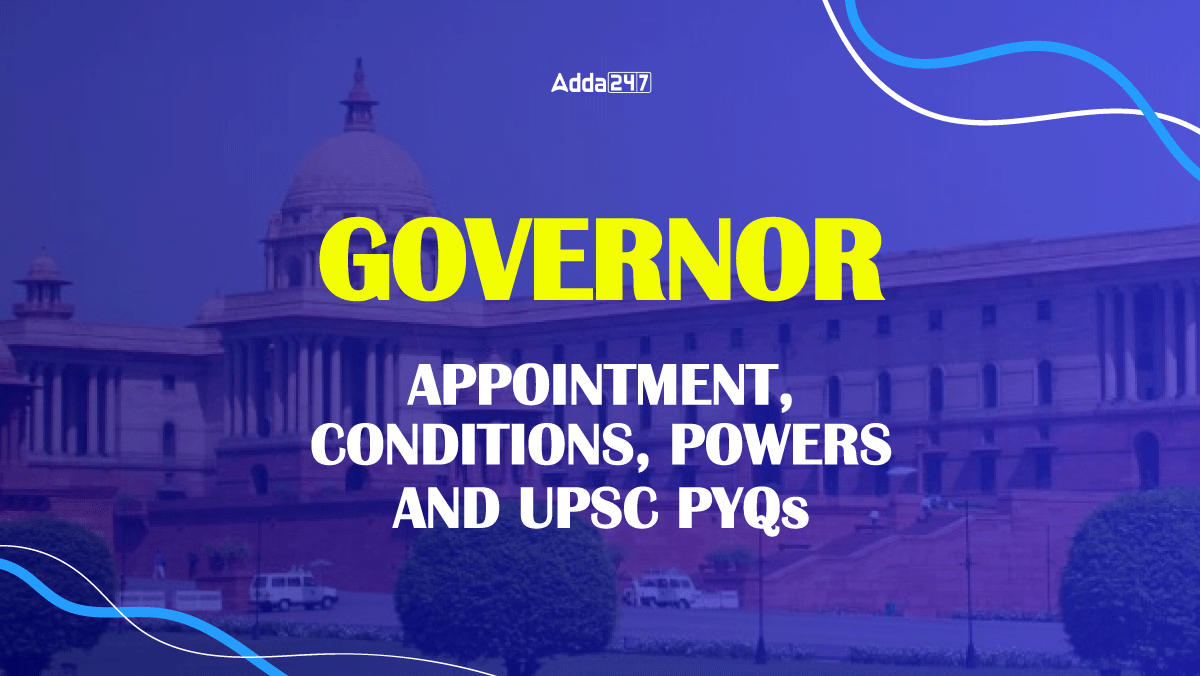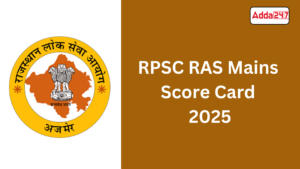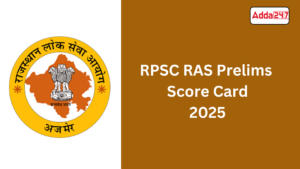Table of Contents
The constitution of India has laid down a similar pattern for the state government as for the central government, the chief executive head of the state is the governor and the president is for the central government. There is a governor for every state and he plays a vital role in linking the state government to the central government with the aim of improving center-state relations, read more about the Governor in Governor UPSC Notes
Governor UPSC Notes
In this article, we have curated the Governor UPSC Notes which includes appointment, condition of office, terms and powers of the governor and his role for effective administration of the state while ensuring national integrity. This topic is important for UPSC CSE prelims and mains GS 2.
Appointment of Governor
Here we have discussed about the appointment of governor :
- Governor is nor elected directly nor he is elected through electoral college (like president).
- He is appointed by the President.
- Earlier the constitutional committee was of the opinion for direct elections of the governor, but the current system was adopted for the reasons mentioned below,
- direct elections could create conflict between Chief Minister and the Governor.
- he is only nominal head, and elections can be expensive.
- elected governor would eventually belong to some political party and might not be neutral.
- the current system further enhances scope for development of the national integrity.
- to avoid second man from the ruling party to be the governor.
- Constitution mentions below mentioned qualification for appointment of governor
- He should be citizen India
- He should be at least 35 year old
- He should not belong to the state where he is being appointed
- Also, while appointing the governor, the president has to consult the chief minister of the concerned state
What are the Conditions of the Governor’s Office ?
We will be discussing about the conditions of governor office as laid by the constitution of India
- He should not be a member of parliament or any state legislature.(If any such member is appointed, he must resign before the joining date).
- He should not hold any office of profit.
- He is provided with an official residence (Raj Bhawan) and other perks as determined by the parliament.
- He can be appointed as governor for more than one state.
- Service conditions can not be altered to his disadvantages.
- Salary of governor is 1 Lakh per month.
- He also enjoys immunity from criminal proceedings, he can not be arrested or imprisoned, similarly to the president, civil proceedings can be initiated after giving a 2 month notice.
- The oath of governor is administered by Chief Justice of the state high court and in his absence the senior most judge can administer the oath.
Terms of Office for the Governor
Read here about the terms of office of the governor
- Governor holds the office for a term of 5 years from the date on which he assume his charge.
- Governor serves till the pleasure of the president.
- Governor can resign by submitting his resignation to the president.
- He can be re-appointed as governor of the same state.
- Constitution does not provide ground on which the governor can be removed from the office.
Powers of Governor
The powers of governor can be categorized into :
- Executive Powers
- Legislative Power
- Financial Power
- Judicial Power
- Veto Power
- Ordinance making powers
- Pardoning Power
Now we will be discussing about these powers in detail
Executive Powers of the Governor
The governor performs the following executive powers :
- All executive actions are taken in name of the governor
- He appoints the following :
- Chief Minister and other ministers
- Advocate General
- State Election Commissioner
- Chairman and members of the State public service commission
- he can seek any information for administration and legislative purposes
- He can recommend the president about imposing emergency in the state
- He also act as chancellor of all universities in the state.
Legislative Powers of the Governor
The governor performs the following legislative powers :
- He can summon the state legislative assembly and also he can dissolve the state assembly.
- He commences first session of assembly after elections and first session after of each year.
- He can appoint any member to takeover the assembly proceedings in absence of both speaker and deputy speaker.
- He can nominate 1 person from the Anglo-Indian community to the state assembly.
- If a bill is presented for assent of governor he may:
- give his assent
- withhold the bill
- return the bill (if not a money bill)
- Reserve the bill for consideration of the president
- He may also promulgate ordinance if the assembly is not in session(subject to the condition that the ordinance must be approved by the state legislature with 6 weeks from re assembly
Financial Power of the Governor
Below listed are the financial powers of the governor :
- He overlooks that that annual financial statement is presented before the assembly.
- Money bills ca only be presented after his prior permission.
- No demand on grant can be made except for his recommendation
- He can make use of the contingency fund for the state, to meet any unforeseen circumstance.
- He constitutes finance commission (every 5 years) to review the financial conditions for panchayat and municipalities.
Judicial Power of the Governor
The Governor is vested with the following judicial powers:
- He can grant pardon, reprives, respites and re-mission of punishments, also he can commute the sentence of any convicted person, against any law related to the state.
- President consults the governor while appointing the judges of the high court.
- He makes appointment, posting and promotions of the district judges.
- He appoints people to the judicial services with consultation of the high court and the state public service commission.
Veto Power of the Governor
Veto powers, in case a bill is presented to the governor for his assent:
- we have above discussed about the options with governor when a bill is presented to him, if the bill was returned and is again passed without any changes, he enjoys a suspensive veto.
- Governor cannot return the money bill for the re-consideration.
Ordinance making powers of the Governor
The governor holds the following ordinance powers :
- Governor can promulgate ordinance if the assembly is not in session.
- He can promulgate ordinance if he is satisfied with the circumstances.
- He can issue ordinance only on matters relating to the subjects on which state can make law.
- Ordinance has same executional effect as of the law passed by the state legislature.
- He can withdraw ordinance at any time.
- He can issue an ordinance on advise of council of minister, ordinance making power in not discretionary.
- Ordinance should be passed by the state legislature within 6 weeks of its re-assembly.
Pardoning Power of the Governor
Governor has the following pardoning powers:
- He can pardon, reprieve, respite, remit, suspend and commute punishment sentence.
- He can not pardon the death sentence, even if the state suggests for death sentence.
- Like president he does not posses any power in case of a sentence issued by the military court.
Constitutional Position of Governor
As we discussed above that the constitution provides governor as nominal executive head of the state where as the real executive is constituted with the council of ministers headed by the chief minister which means the governor exercise his powers with advise from the council of ministers.
Article 154 : deals with the executive powers of the governor
Article 163 : There shall be council of minister to aid and advise the governor
The governor has discretion in following cases:
- reservation of a bill for consideration of the president
- recommendation for posing president’s rule
- seeking information from the chief minister regarding the administrative matters
- Determining the amount payable by the governments of Assam, Meghalaya, Tripura and Mizoram to scheduled tribal areas
- Appointment of chief minister when no party has a clear majority.
- Dismissal of the council of minister when it fails to prove the confidence.
- Dissolution of state legislative assembly if council of minister losses the majority.
Governor UPSC PYQs
Now that you have studied about the Governor UPSC Notes, you should be in a good position to attempt the UPSC PYQs for Governor.
Below we have attached both UPSC Prelims PYQs and UPSC Mains PYQs for Governor.
UPSC Prelims PYQs for Governor
Q1. Which one of the following suggested that the Governor should be an eminent person from outside the State and should be a detached figure without intense political links or should not have taken part in politics in the recent past? [2019]
a) First Administrative Reforms Commission (1966)
b) Rajamannar Committee (1969)
c) Sarkaria Commission (1983)
d) National Commission to Review the Working of the Constitution (2000)
Q2. Which of the following are the discretionary powers given to the Governor of a State? [2014]
1. Sending a report to the President of India for imposing the President’s rule
2. Appointing the Ministers
3. Reserving certain bills passed by the State Legislature for consideration of the President of India
4. Making the rules to conduct the business of the State Government
Select the correct answer using the code given below:
a) 1 and 2 only
b) 1 and 3 only
c) 2, 3 and 4 only
d) 1, 2, 3 and 4
Q3. Which one of the following statements is correct? [2013]
a) In India, the same person cannot be appointed as governor for two or more states at the same time
b) The judges of the high court of the states in India are appointed by the Governor of the state just as the judges of the Supreme Court are appointed by the president
c) No procedure has been laid down in the constitution of India for the removal of a governor from his/her post
d) In the case of a union territory having a legislative setup, the chief minister is appointed by the Lt. Governor on the basis of majority support
UPSC Mains PYQs for Governor
Q1. Discuss the essential conditions for exercise of the legislative powers by the Governor. Discuss the legality of re-promulgation of ordinances by the Governor without placing them before the Legislature. [250 Words] [15 Marks] [2022]
Q2. Whether the Supreme Court Judgement (July 2018) can settle the political tussle between the Lt. Governor and elected government of Delhi? Examine. [250 Words] [15 Marks] [2018]
Q3. Discuss the essentials of the 69th Constitutional Amendment Act and anomalies, if any, that have led to recent reported conflicts between the elected representatives and the institution of the Lieutenant Governor in the administration of Delhi. Do you think that this will give rise to a new trend in the functioning of the Indian federal politics? [200 Words] [12.5 Marks] [2016]
List of Governors of India
Check out the List of Governor of India in 2024 provided in the table below:
| List of Governors of India | ||
| Sr. No. | State | Governor (State-wise) |
| 1. | Andhra Pradesh | Shri Justice (Retd.) S. Abdul Nazeer |
| 2. | Arunachal Pradesh | Lt. General Kaiwalya Trivikram Parnaik, PVSM, UYSM, YSM (Retired) |
| 3. | Assam | Shri Gulab Chand Kataria |
| 4. | Bihar | Shri Rajendra Vishwanath Arlekar |
| 5. | Chhattisgarh | Shri Biswa Bhusan Harichandan |
| 6. | Goa | Shri P.S. Sreedharan Pillai |
| 7. | Gujarat | Shri Acharya Dev Vrat |
| 8. | Haryana | Shri Bandaru Dattatraya |
| 9. | Himachal Pradesh | Shri Shiv Pratap Shukla |
| 10. | Jharkhand | Shri C.P. Radhakrishnan |
| 11. | Karnataka | Shri Thaawarchand Gehlot |
| 12. | Kerala | Shri Arif Mohammed Khan |
| 13. | Madhya Pradesh | Shri Mangubhai Chhaganbhai Patel |
| 14. | Maharashtra | Shri Ramesh Bais |
| 15. | Manipur | Sushri Anusuiya Uikye |
| 16. | Meghalaya | Shri Phagu Chauhan |
| 17. | Mizoram | Dr. Kambhampati Haribabu |
| 18. | Nagaland | Shri La. Ganesan |
| 19. | Odisha | Shri Raghubar Das |
| 20. | Punjab | Shri Banwarilal Purohit |
| 21. | Rajasthan | Shri Kalraj Mishra |
| 22. | Sikkim | Shri Lakshman Prasad Acharya |
| 23. | Tamil Nadu | Shri R. N. Ravi |
| 24. | Telangana | Shri C.P. Radhakrishnan (Addl. Charge) |
| 25. | Tripura | Shri Indra Sena Reddy Nallu |
| 26. | Uttar Pradesh | Smt. Anandiben Patel |
| 27. | Uttarakhand | Lt. Gen. Gurmit Singh, PVSM, UYSM, AVSM, VSM (Retd.) |
| 28. | West Bengal | Dr. C.V. Ananda Bose |
List of Governors of Union Territories
Check out the following table for governors appointed for respective Indian Union Territories:
| Governors along with respective Union Territories | |
| Union Territory | Governor |
| Andaman and Nicobar Islands | Admiral Davinder Kumar Joshi (Retd.) |
| Chandigarh | Banwari Lal Purohit |
| Dadar and Nagar Haveli and Daman and Diu | Praful Khoda Patel |
| Lakshadweep | Farooq Khan |
| Puducherry | Tamilisai Soundrarajan |
| Delhi | Anil Baijlal |



 RPSC RAS Mains Score Card 2025 Out, Chec...
RPSC RAS Mains Score Card 2025 Out, Chec...
 UPPSC Cut Off 2024, Expected and Previou...
UPPSC Cut Off 2024, Expected and Previou...
 RPSC RAS Prelims Score Card 2025 Out, Ch...
RPSC RAS Prelims Score Card 2025 Out, Ch...




